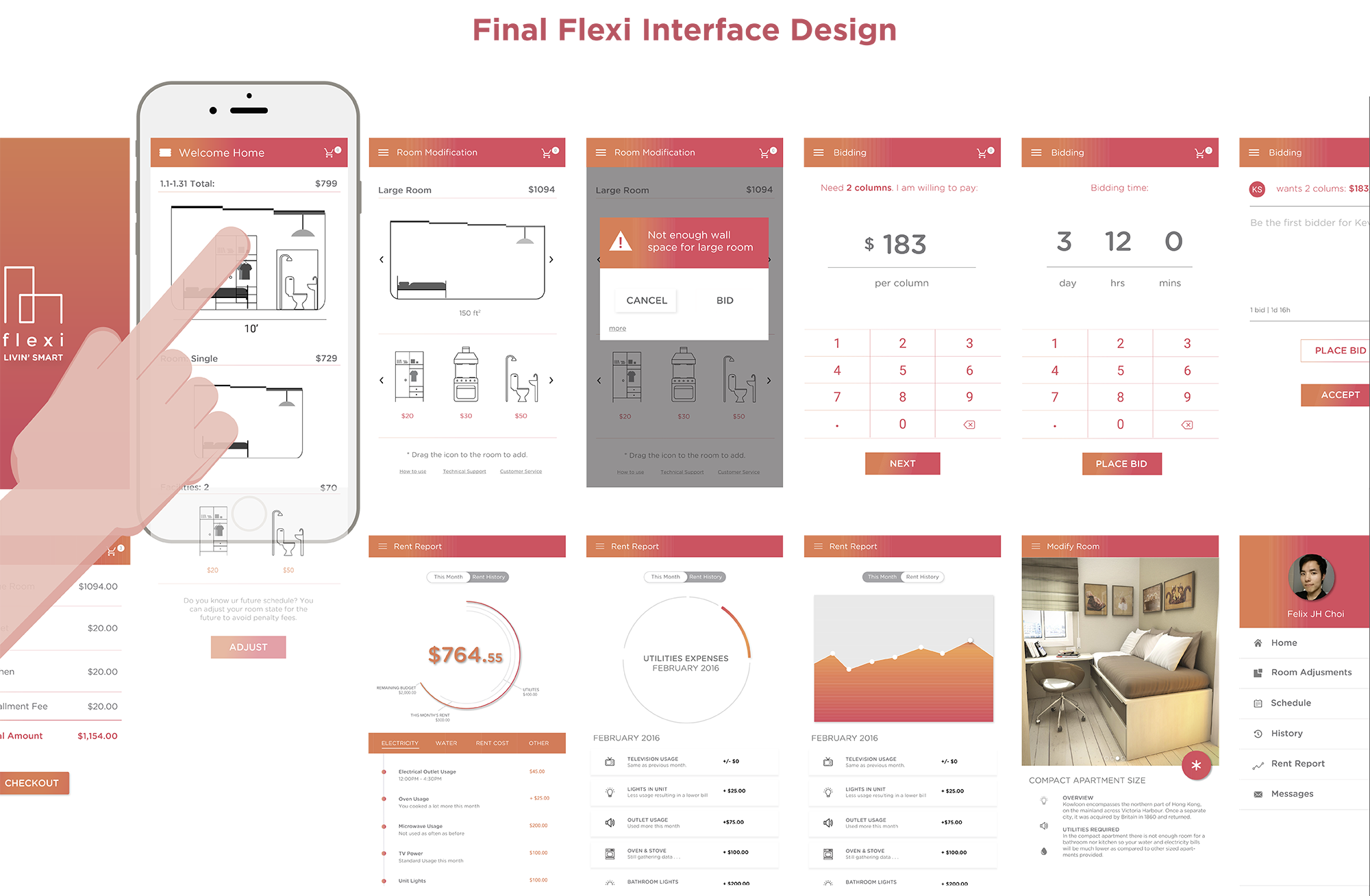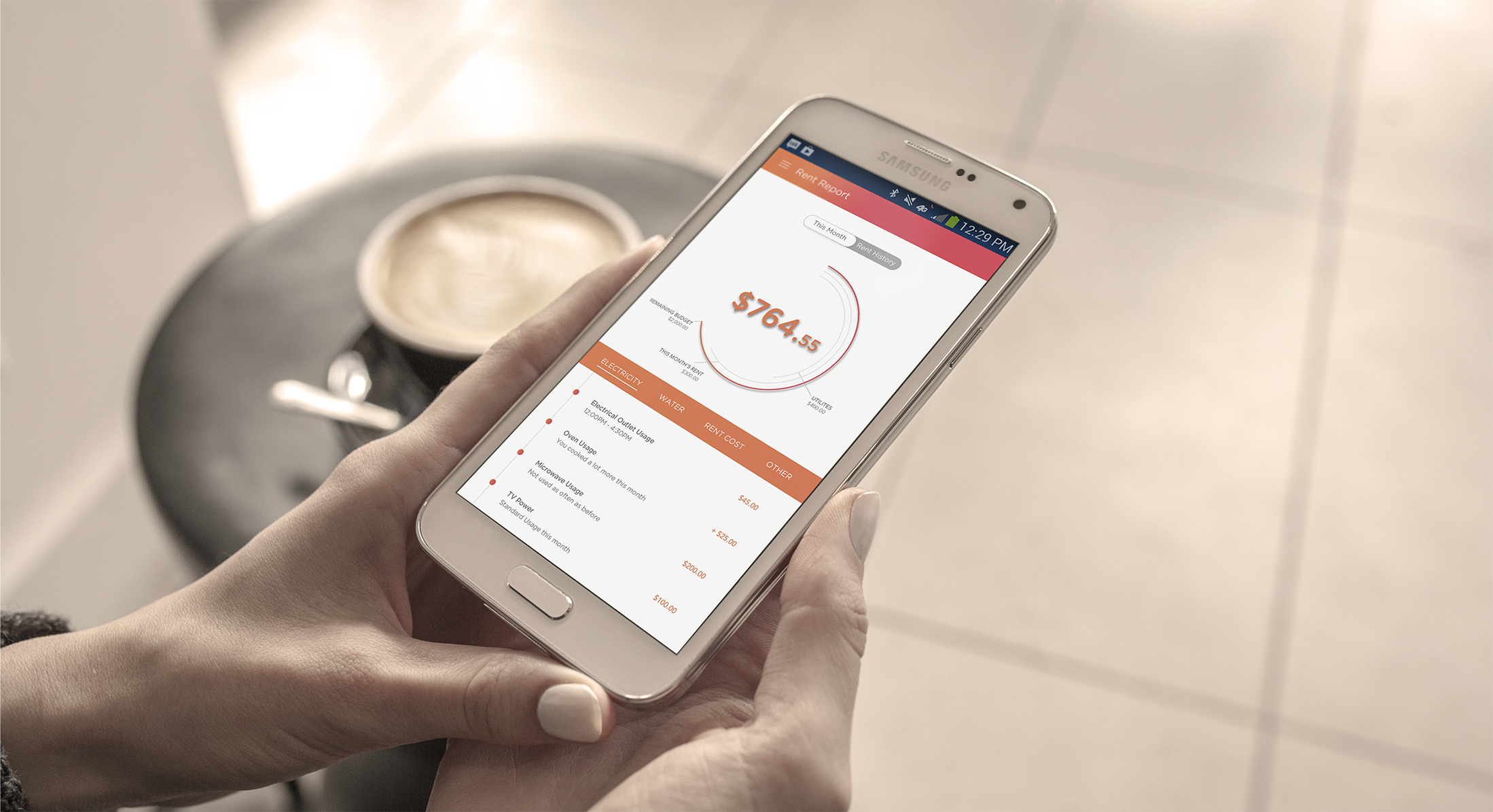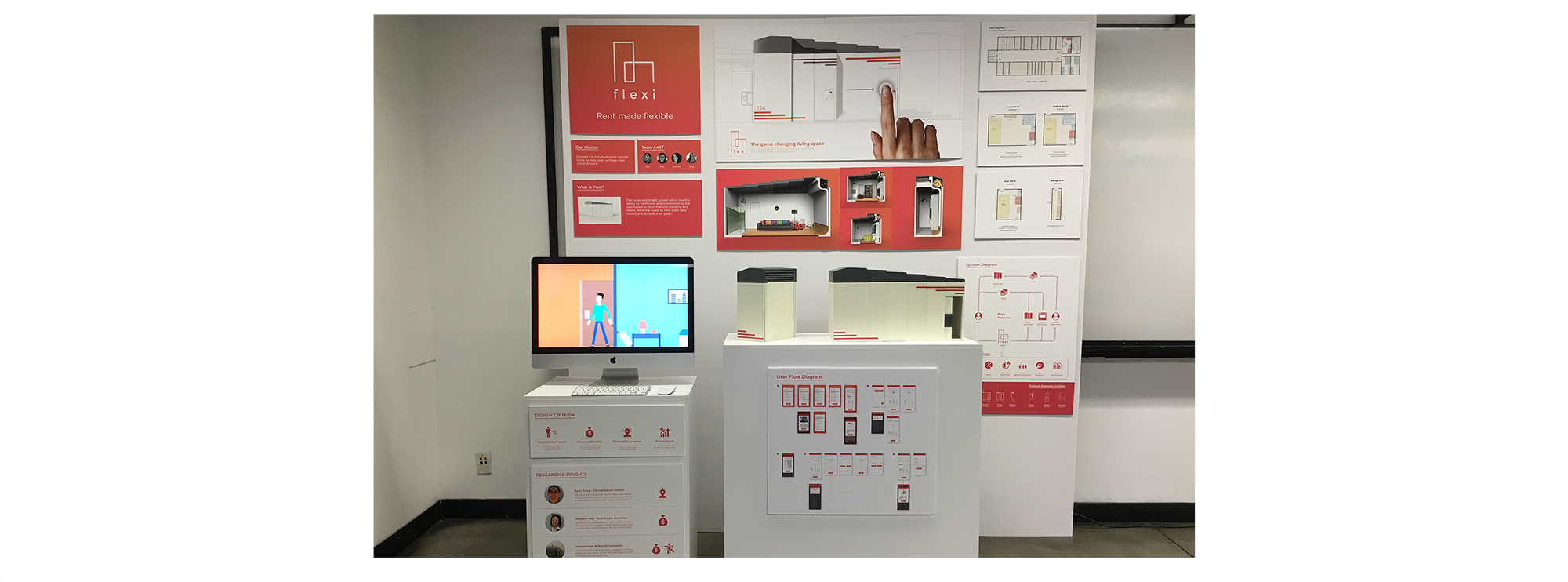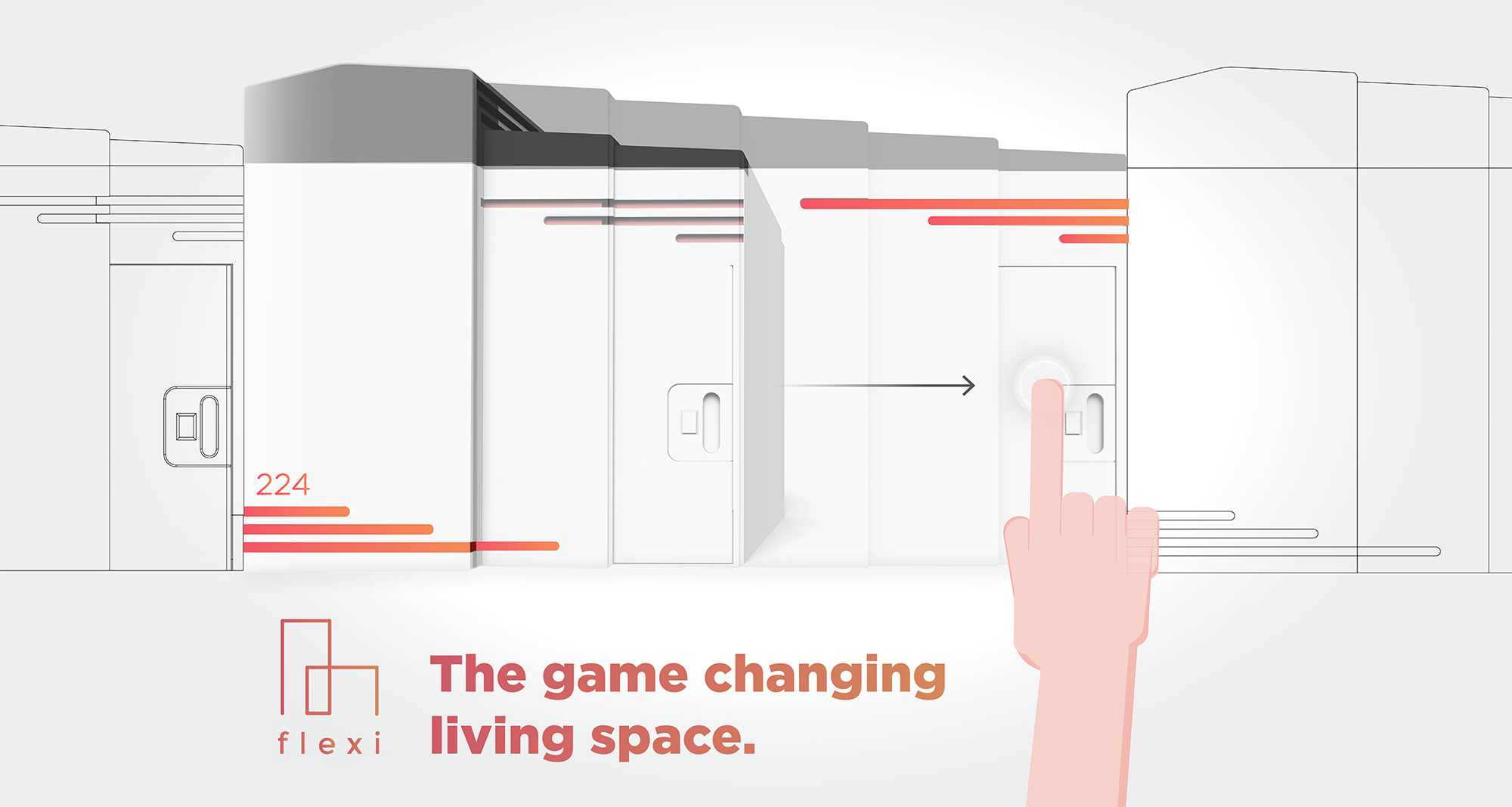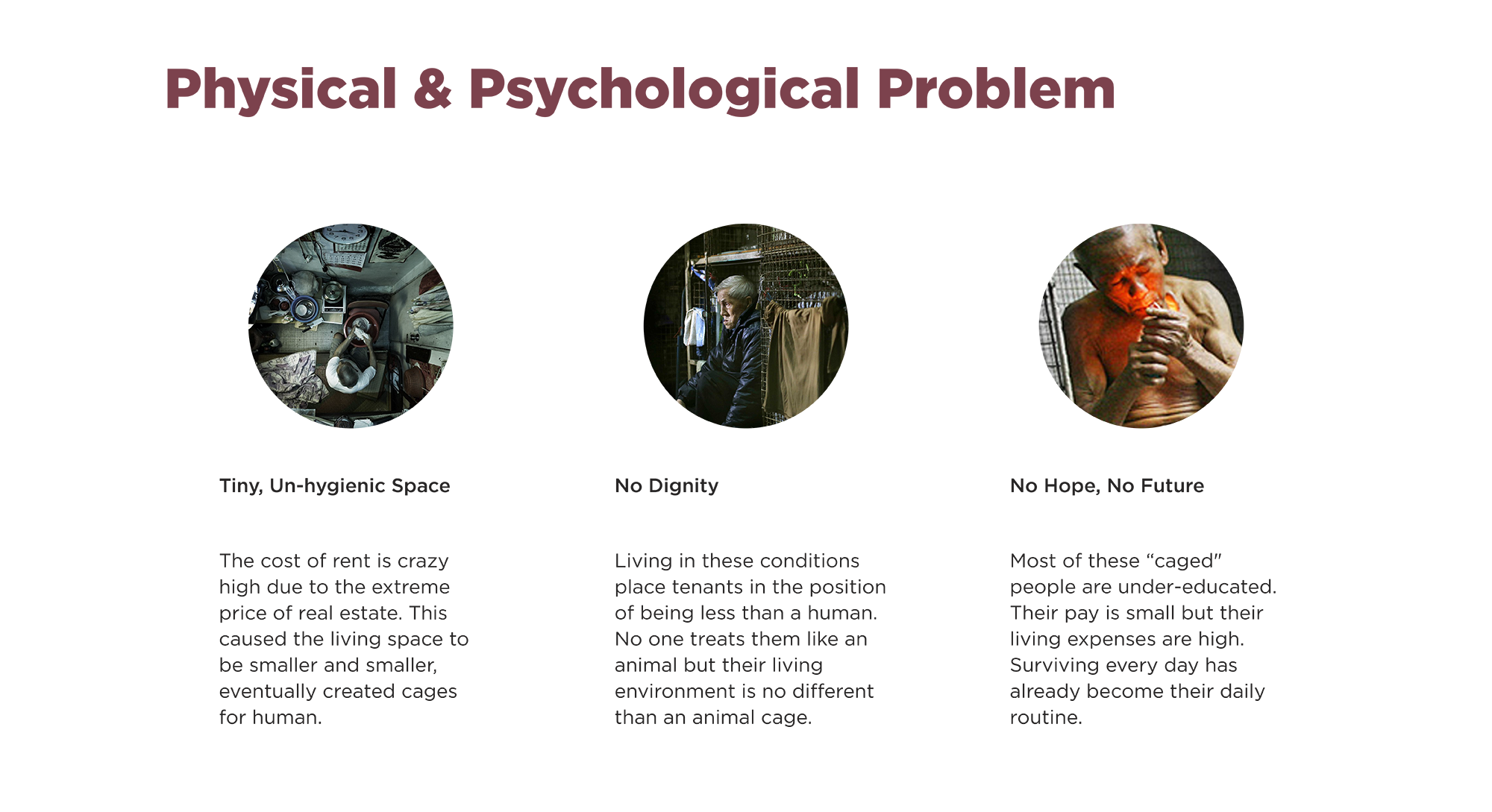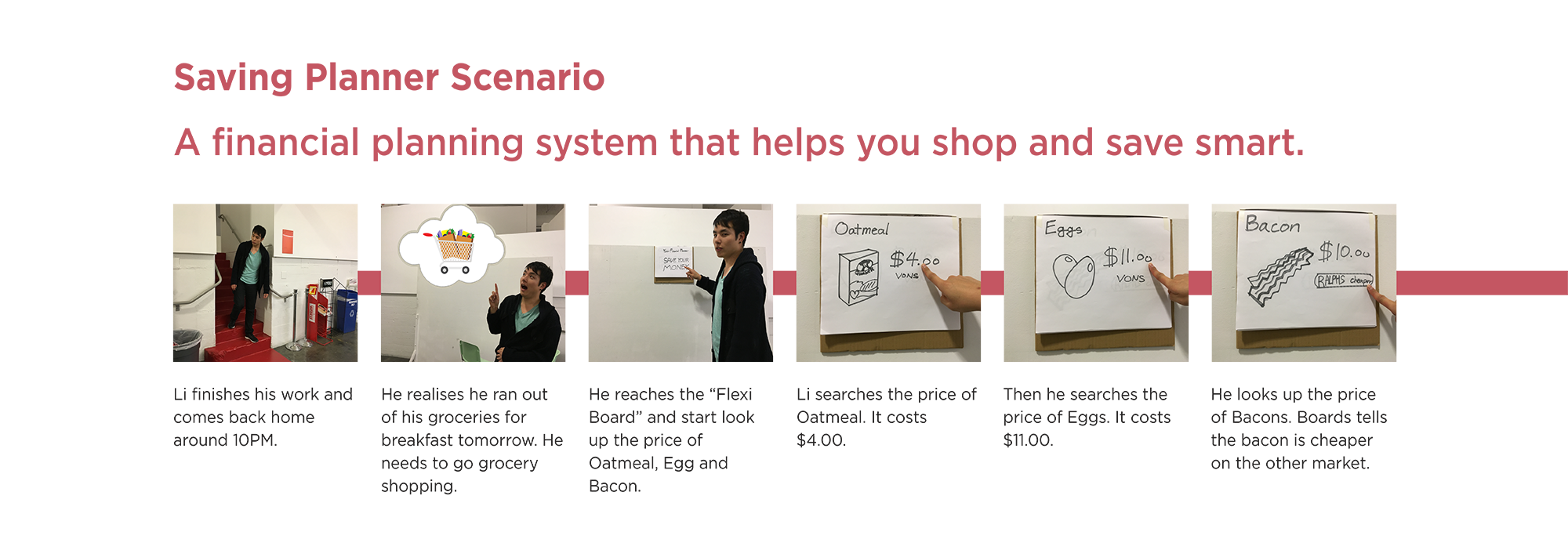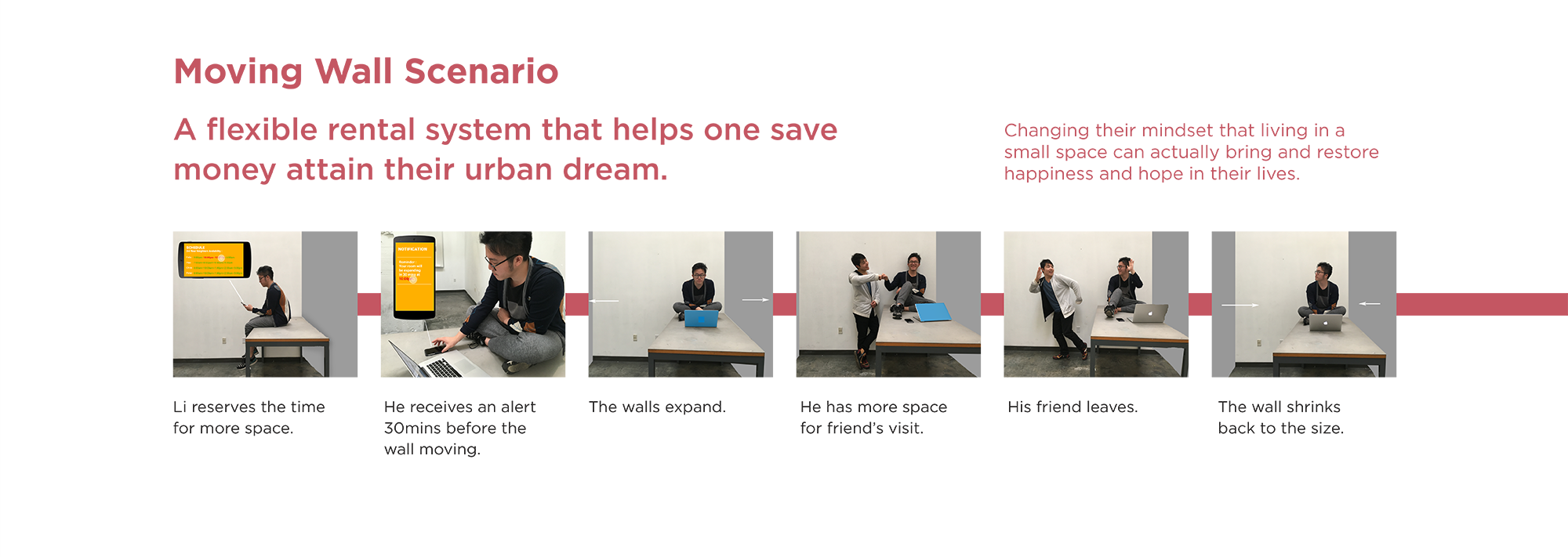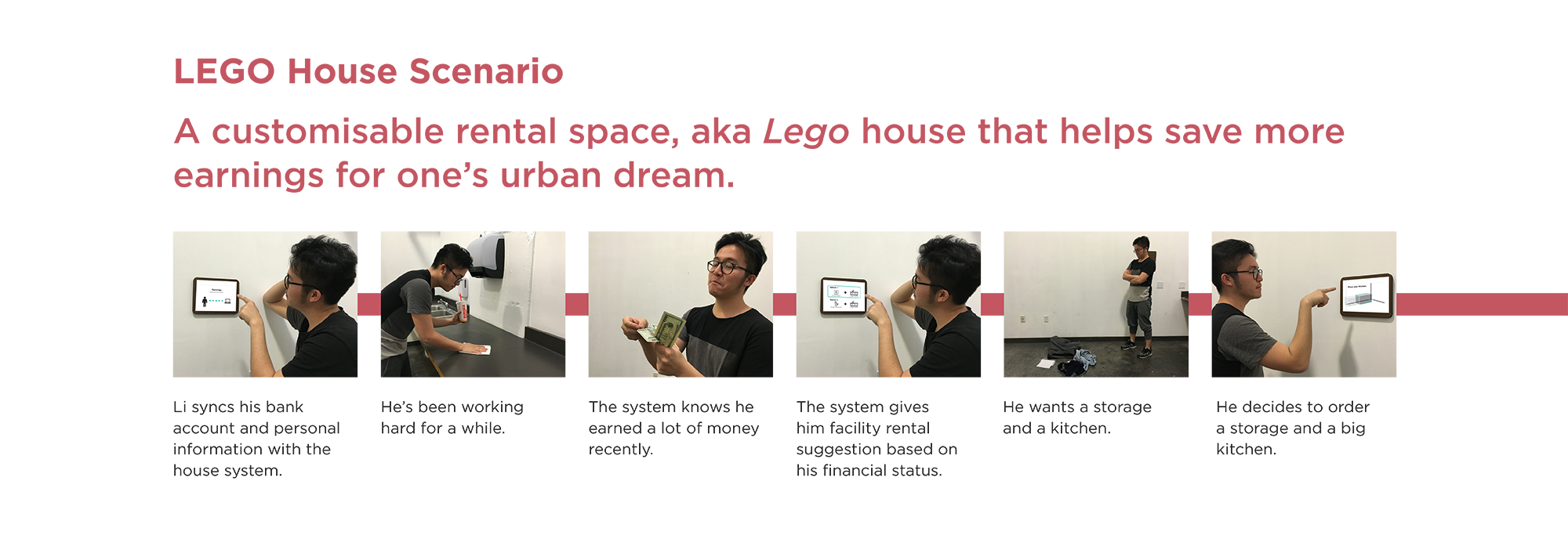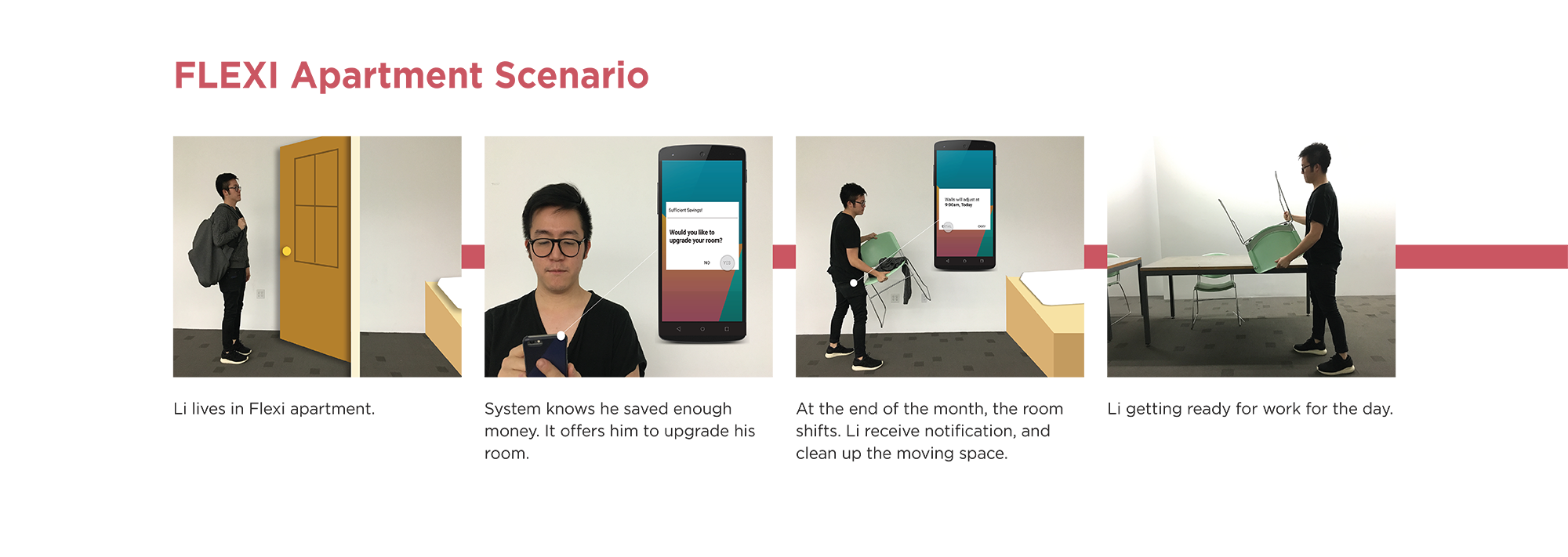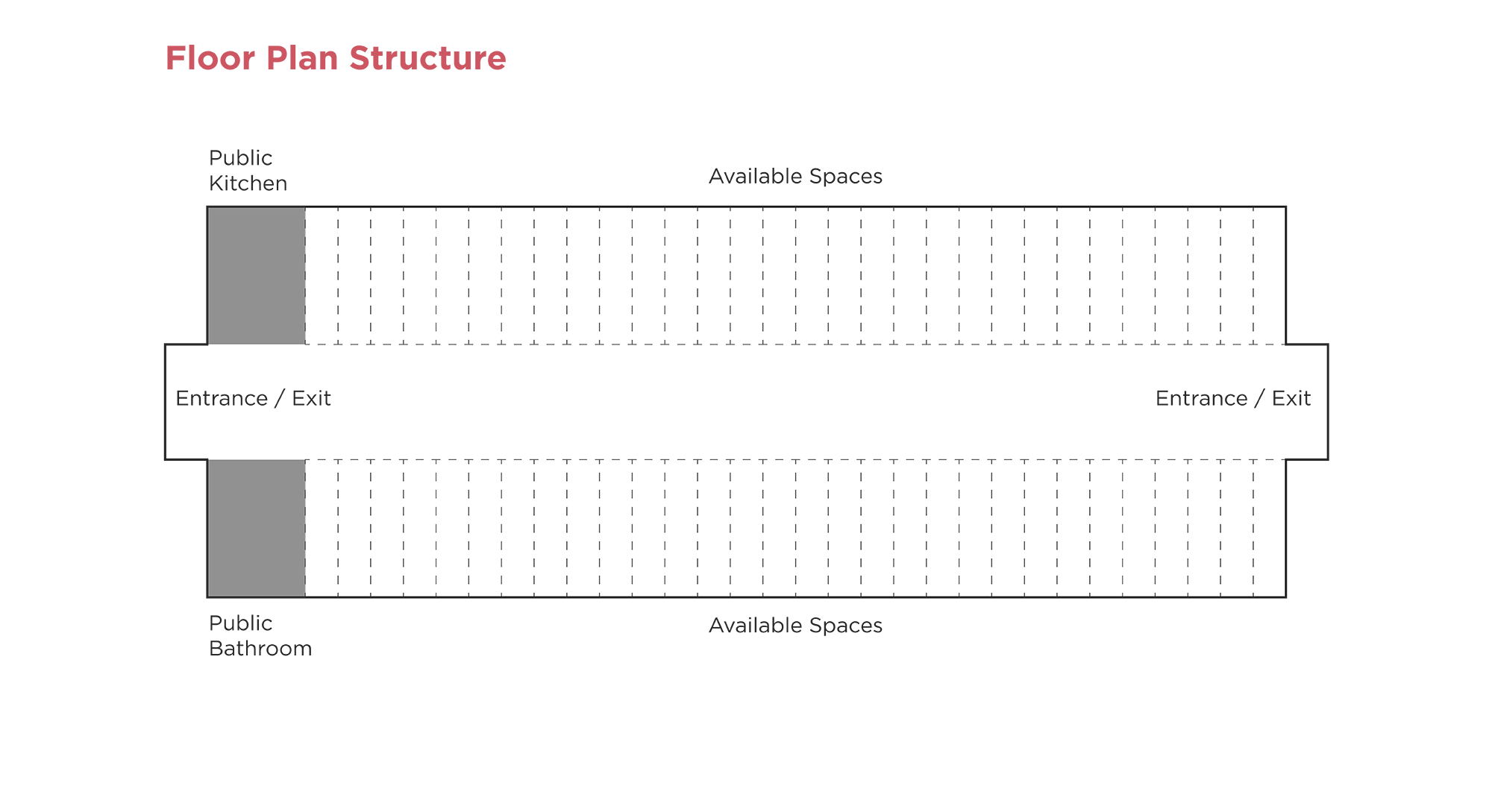PROJECT NAME
FLEXI Apartment
PROJECT CATEGORY
UX/UI, System Design, Product Design
PROJECT DESCRIPTION
This is Google Andriod sponsored project.
Experience the future living space where every new comer to the metropolis feels empowered to better manage their finance and fulfill their dreams.
Flexi is a new apartment system with the ability to be flexible and customizable by tenants based on their financial planning and needs. With Flexi, what has traditionally been the single largest expense no longer needs to remain the same.
This project is nominated Finalist for 2016 Spark Award: Cause
Note: FLEXI Team; Felix JH Choi, Alan Lee, Sarineh Issagholian, Tina Kong.
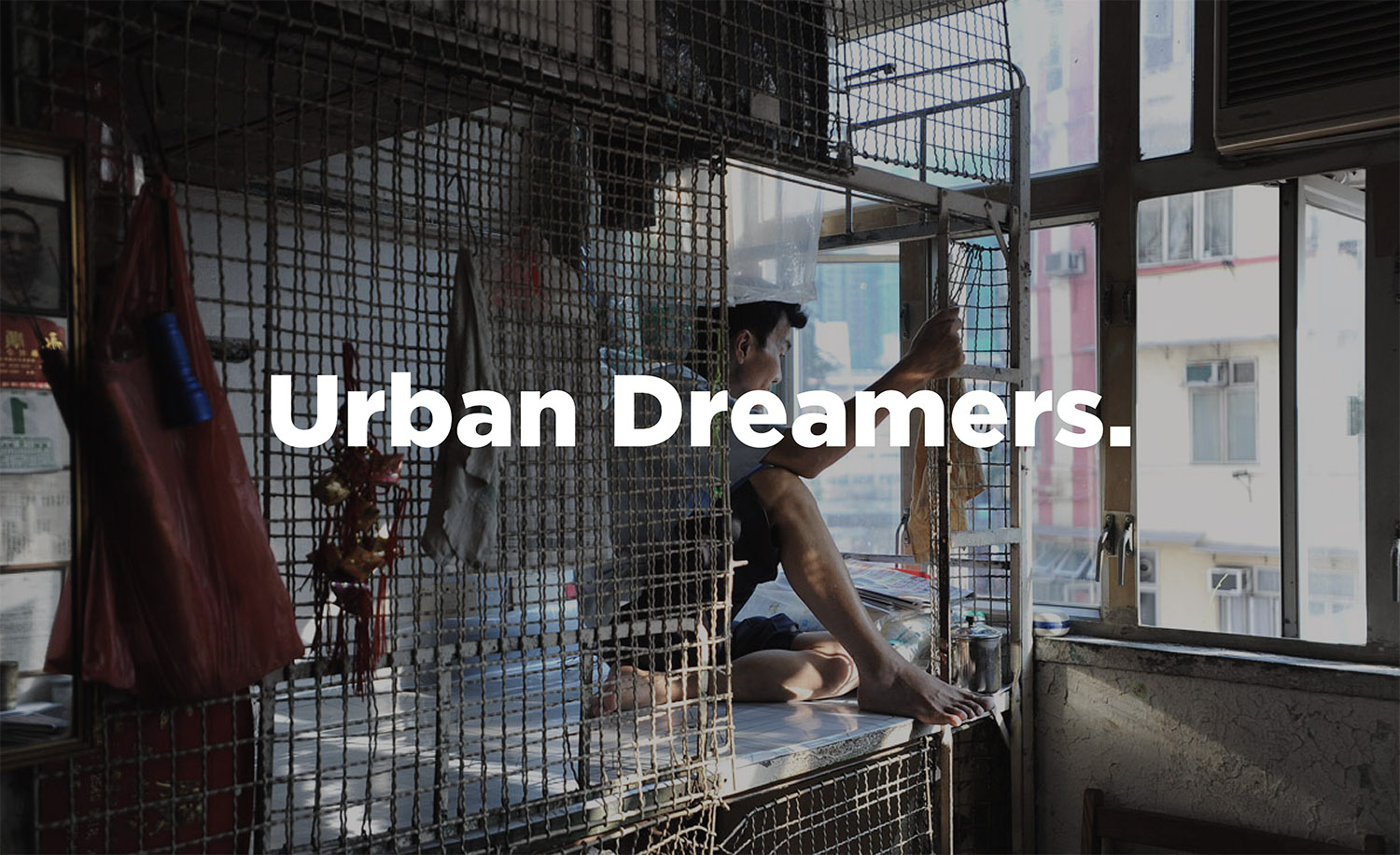

Do you Know about Hong Kong Cage Man?
There are about 200,000 people living in Hong Kong in what the government calls “inadequate housing.” Ridiculous housing prices (Avg.$ 10,475 / sq. ft.) force out low-income families, singletons, elderly and unemployed people living in urban slums and cages. They do not have the rights to choose where they live or to improve their living condition.
Generation after generation, people live in the slums and cages with their relatives, spouses, children, grandchildren, and etc. These living conditions stay the same throughout times since they were infants.
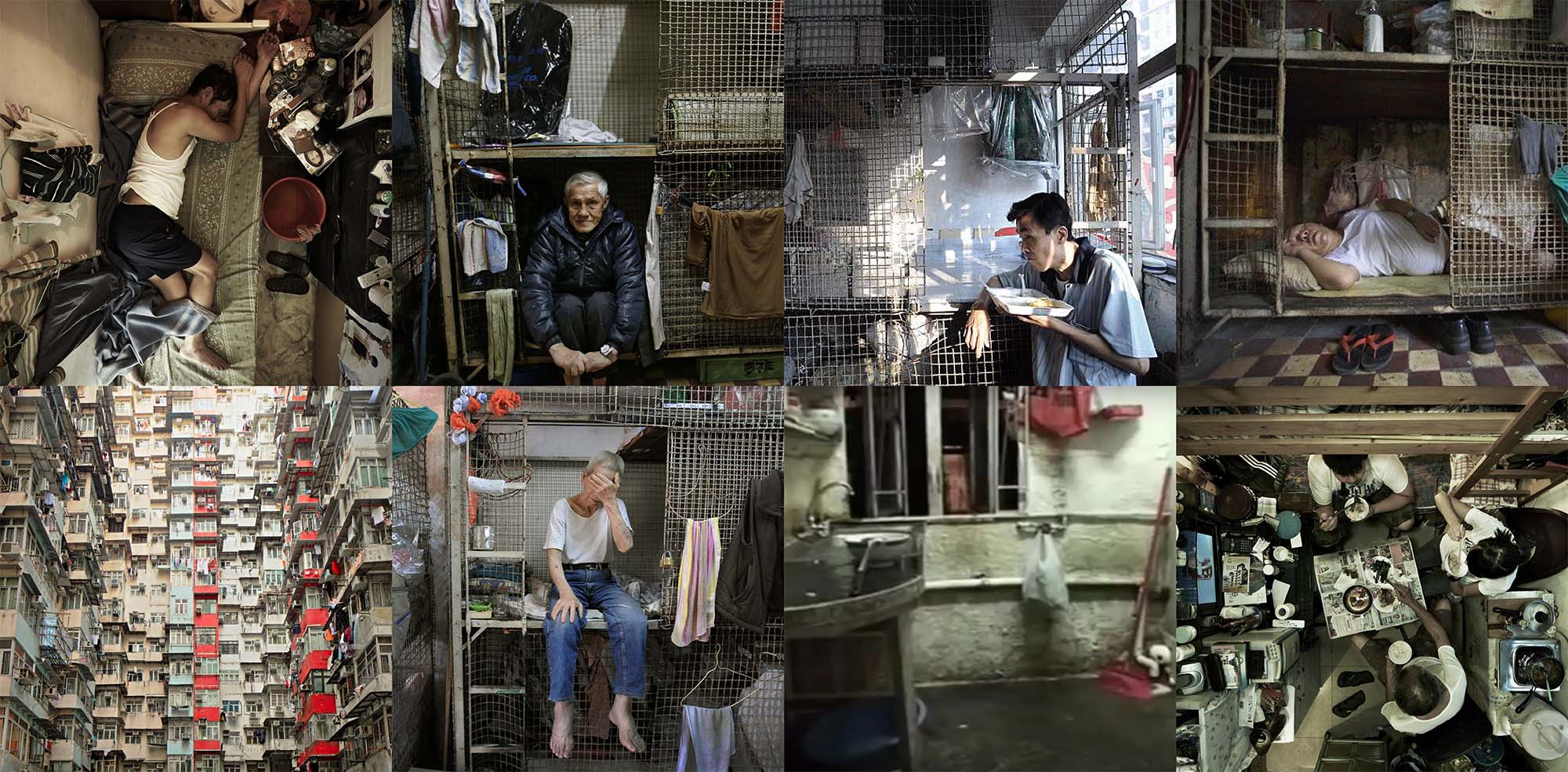







Five Takeaways from the Research
These five takeaways of the users’ needs are highly related to their survival needs. They are mostly placed in the bottom of Maslow's hierarchy of needs. It is crucial to provide them a solution to bring them upward in the pyramid.
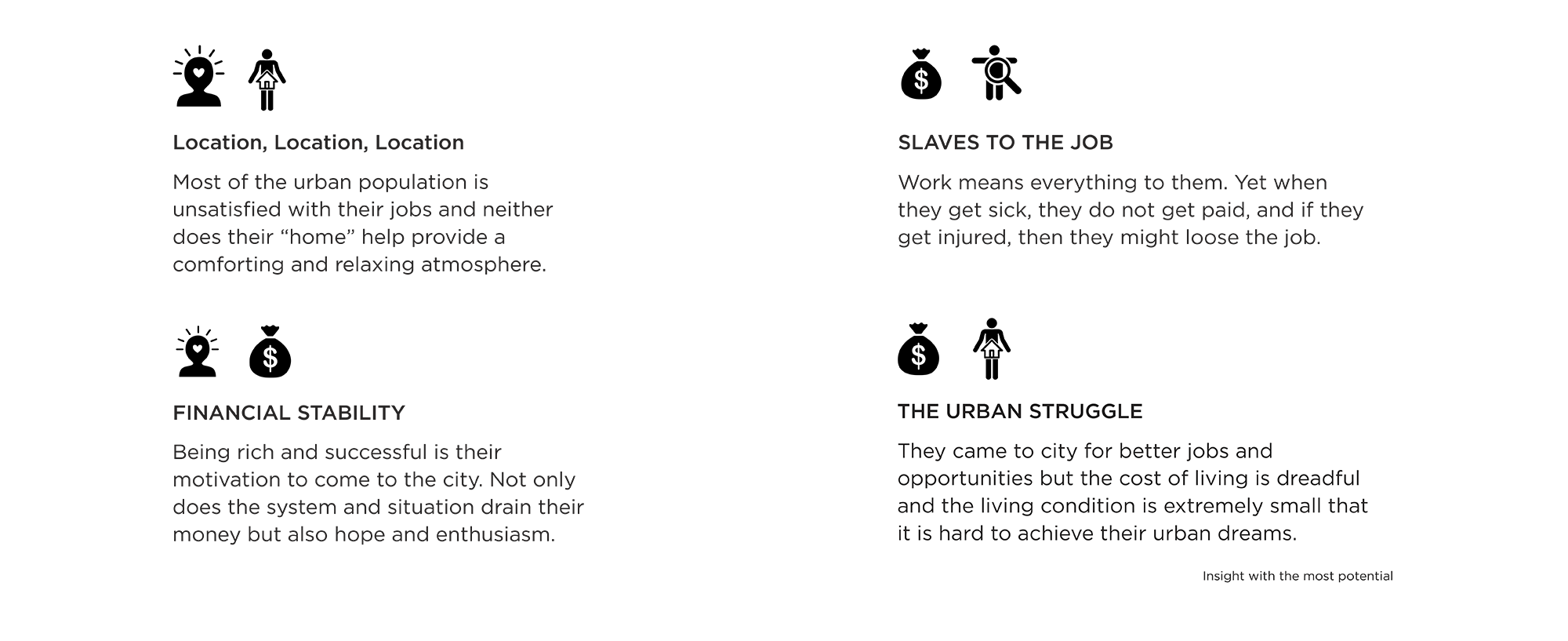



Urban Dream
The definition of “Urban Dream” in this context is money. Money is freedom and opportunity in this materialistic society. All people coming to cities have hopes and dream to be successful and happy. Suggesting a design strategy to increase their income and/or planning an efficient saving scheme will be considered.
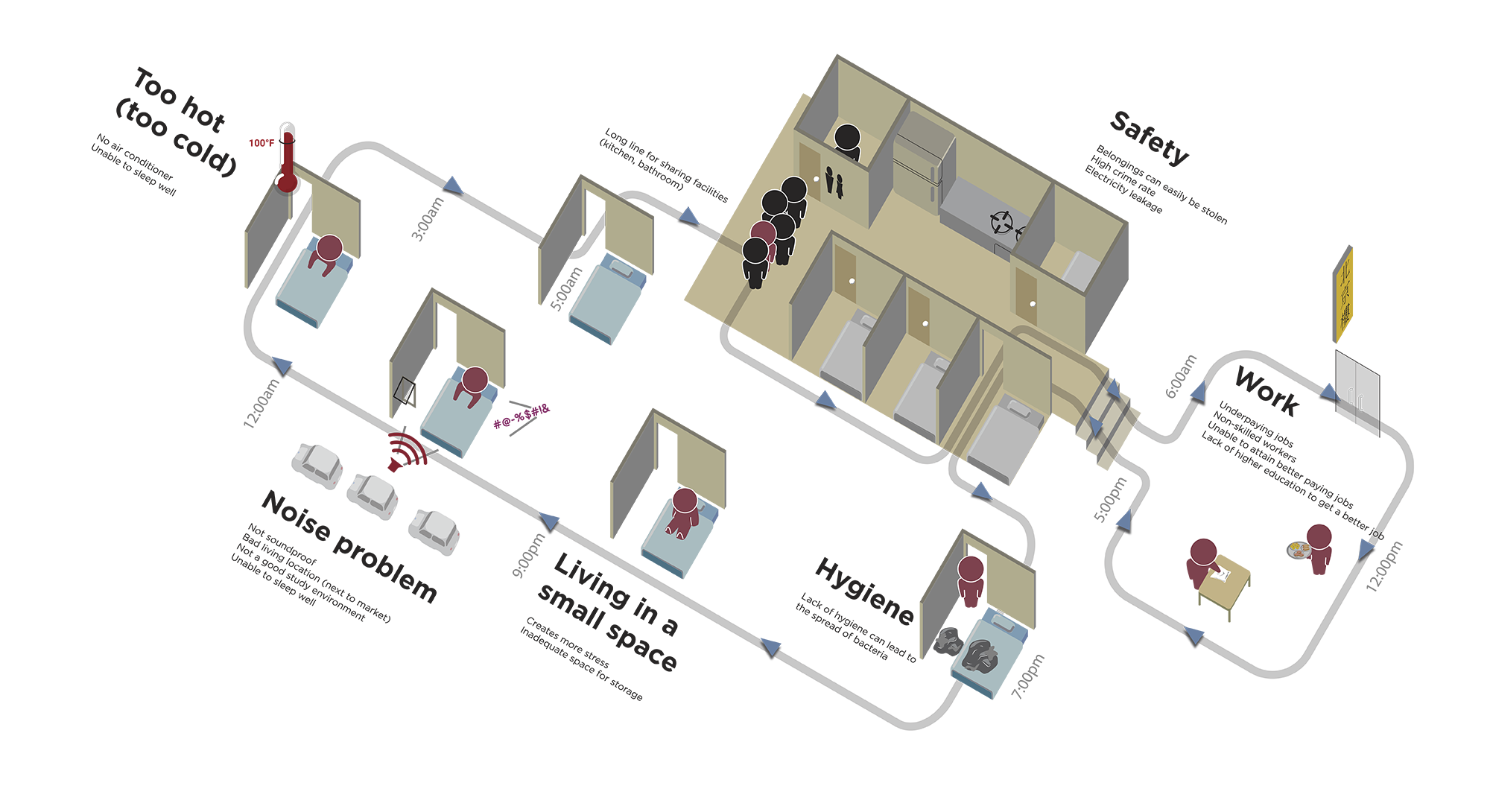

Persona Journey Map
Creating a persona in the environment helps us to understand and imagine the storyboard. In this case, we created a person who came from China to San Fransisco for the American dream. The story is reconstructed based on the lifestyle of a poor worker in San Fransisco.
Li is a 30 year old, single man from China. Moved to San Fransisco for a chance at better his career opportunities. He currently does not have a bachelor degree which limits the jobs that he is able to apply for. At the time being, he is as a water at a Chinese dimsum restaurant in China town.
Daily Tasks:
4:30 AM Wakes up
6:00 AM Goes to work
5:00 PM 11hour shift
5:45 PM Comes back home
6:30 PM Eats supper, usually an instant food
9:00 PM Restless night due to clutter and space
Repeat
EARNS $1500 PER MONTH.
1/3 goes towards rent
ROOM IS ALWAYS CROWDED.
Often causing him stress and depression
SAME ‘OLE ROUTINE.
So tired of rearranging the room that he gives up and often lets it be
NO HAPPY MEDIUM.
Cannot open window because noise from outside makes it very difficult for him to fall and stay sleep
CHANGE FOR A BRIGHTER FUTURE.
Moved to San Fransisco for better opportunities and future
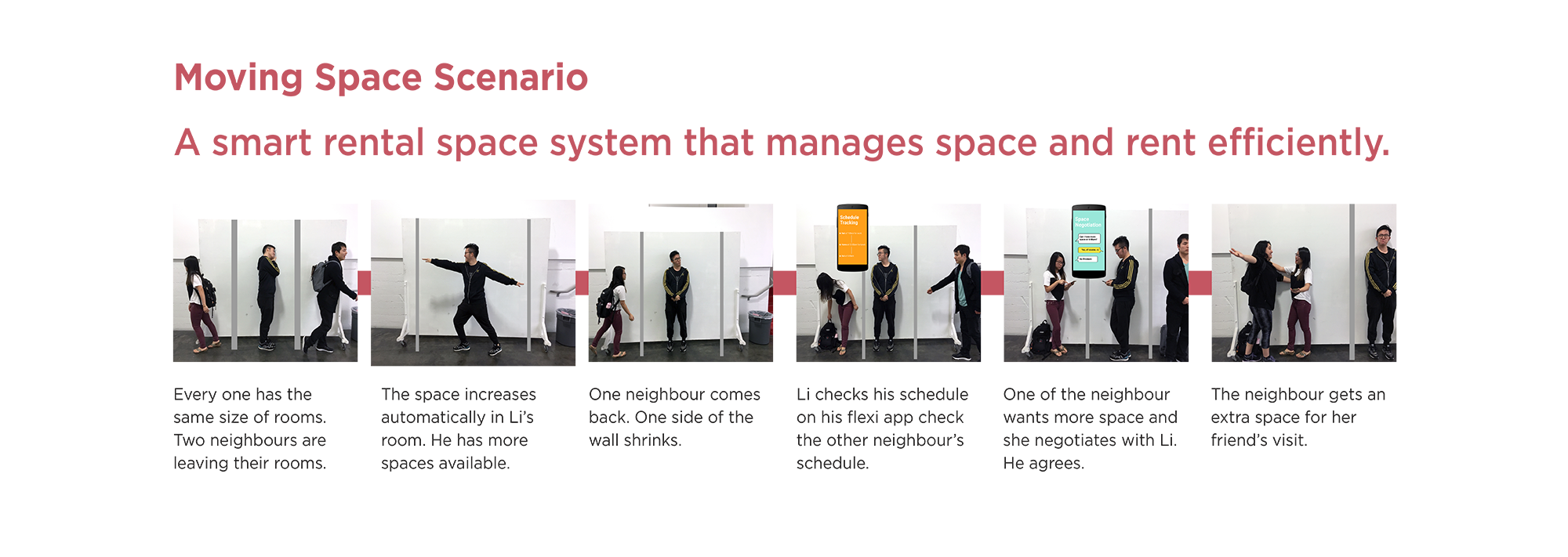

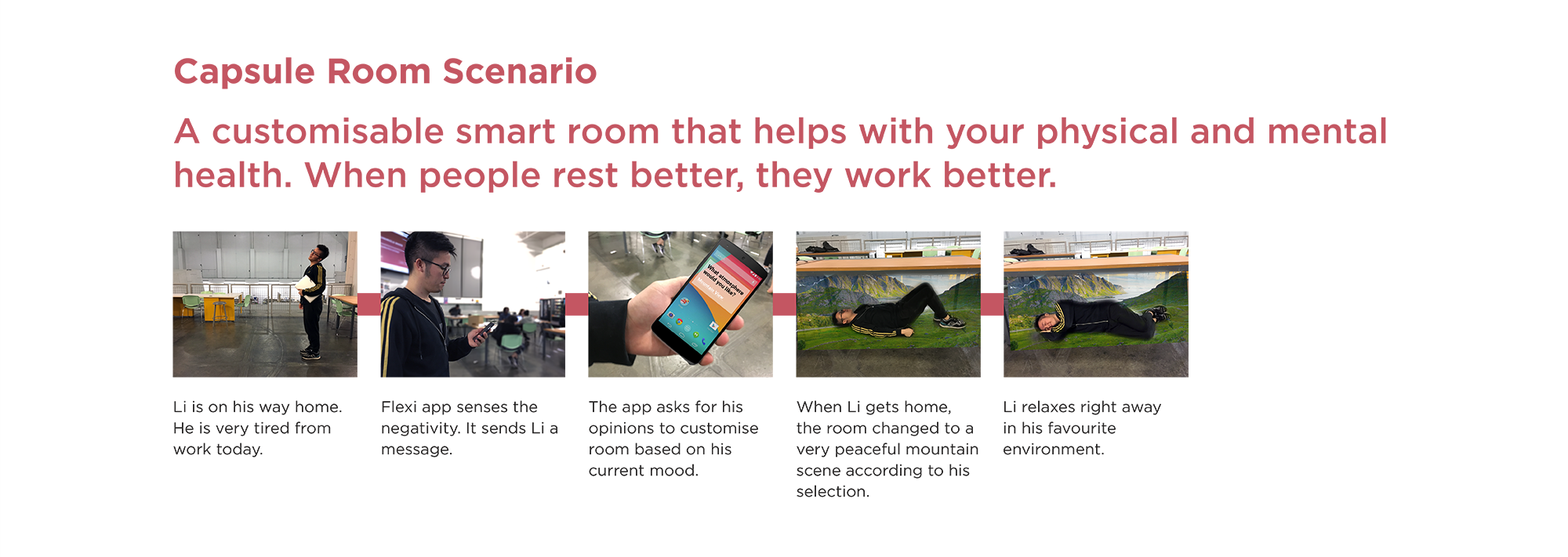

Scenario Style Exploration
Exploring new ideas within a scenario is a good way of discovering the strengths and weakness of the idea. This gives the viewers a complete form of the design understanding and allows them to further imagine the application.
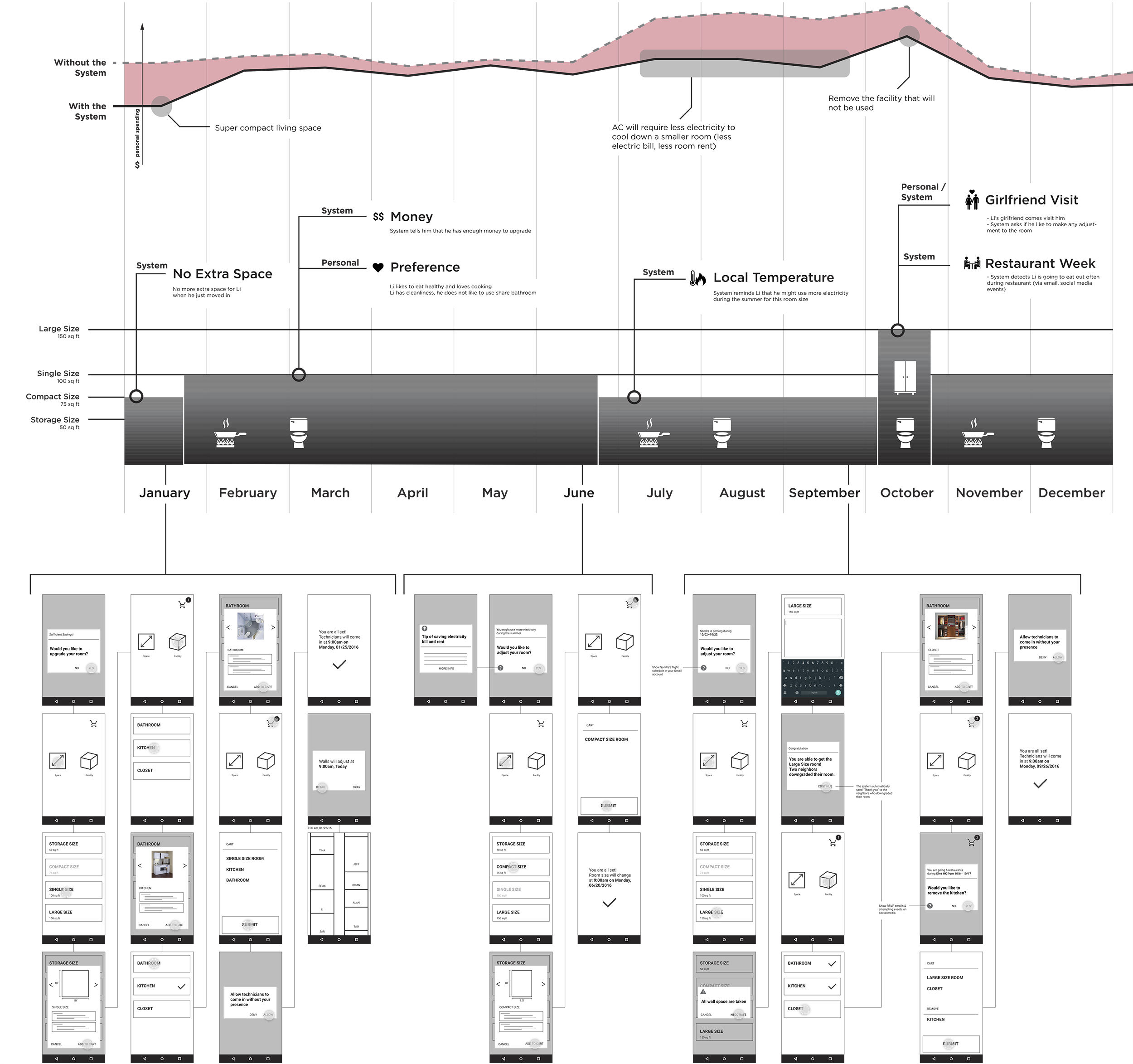

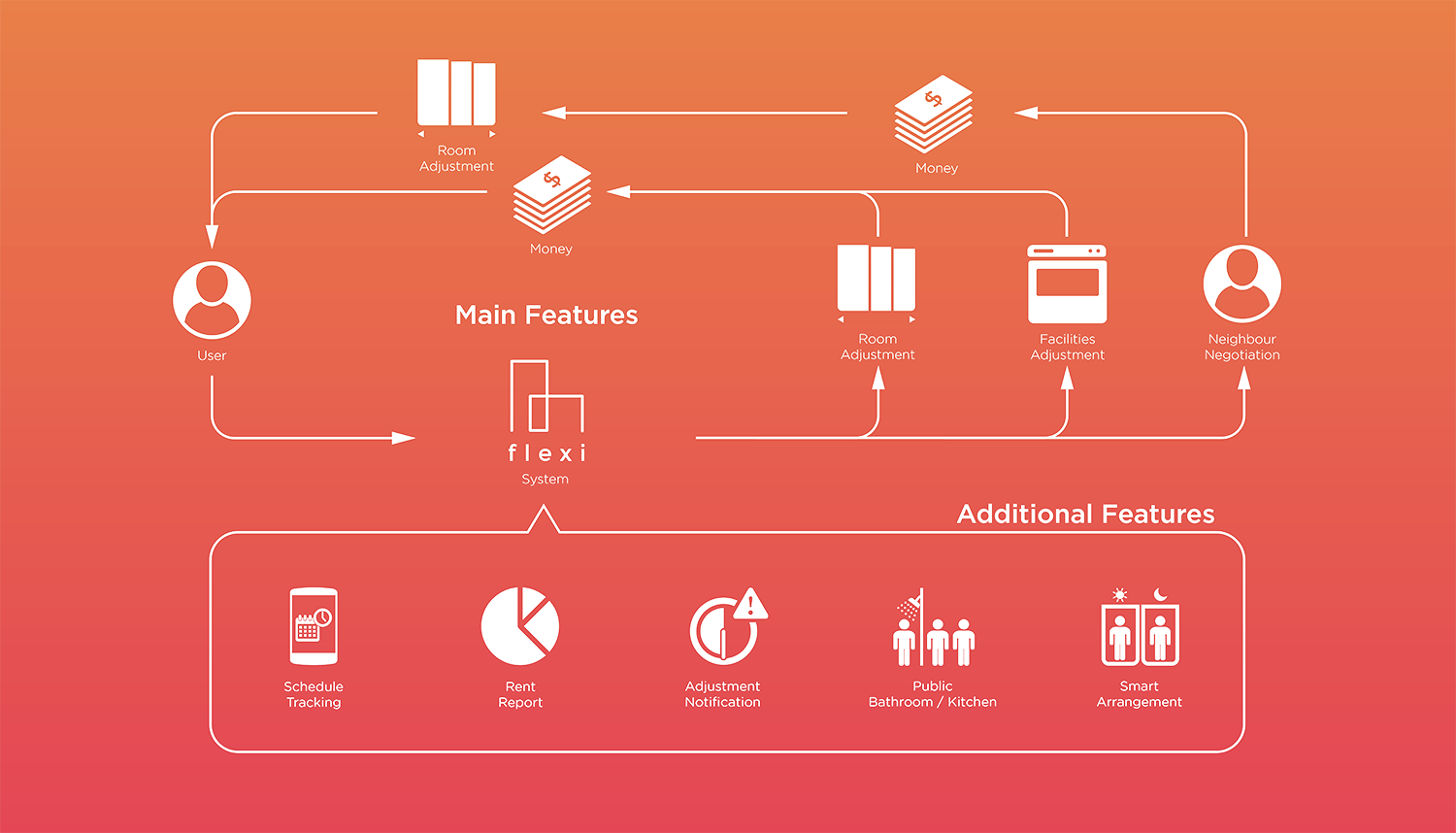

Flexi Apartment System I
The Flexi Apartment has 3 core features. Room size adjustment, Facilities adjustment and Neighbour negotiation.
"Room size adjustment" is an option where the users can resize their room every month. The smaller the room size, the less rent they will pay. Users will be able pay the monthly rent amount depending on their financial status.
"Facilities adjustment" is an option where users can install different kinds of facilities. The available facilities at the moment are kitchens, bathrooms and closets. Each of them can be rented out and the user will be charged monthly. Various sizes and qualities of these facilities are available.
"Neighbour negotiation" is an option where users bargain their spaces with their neighbours. They can either reduce their space and save rent or they can pay more and get more space. The users now can gain or lose space depending on their financial status.
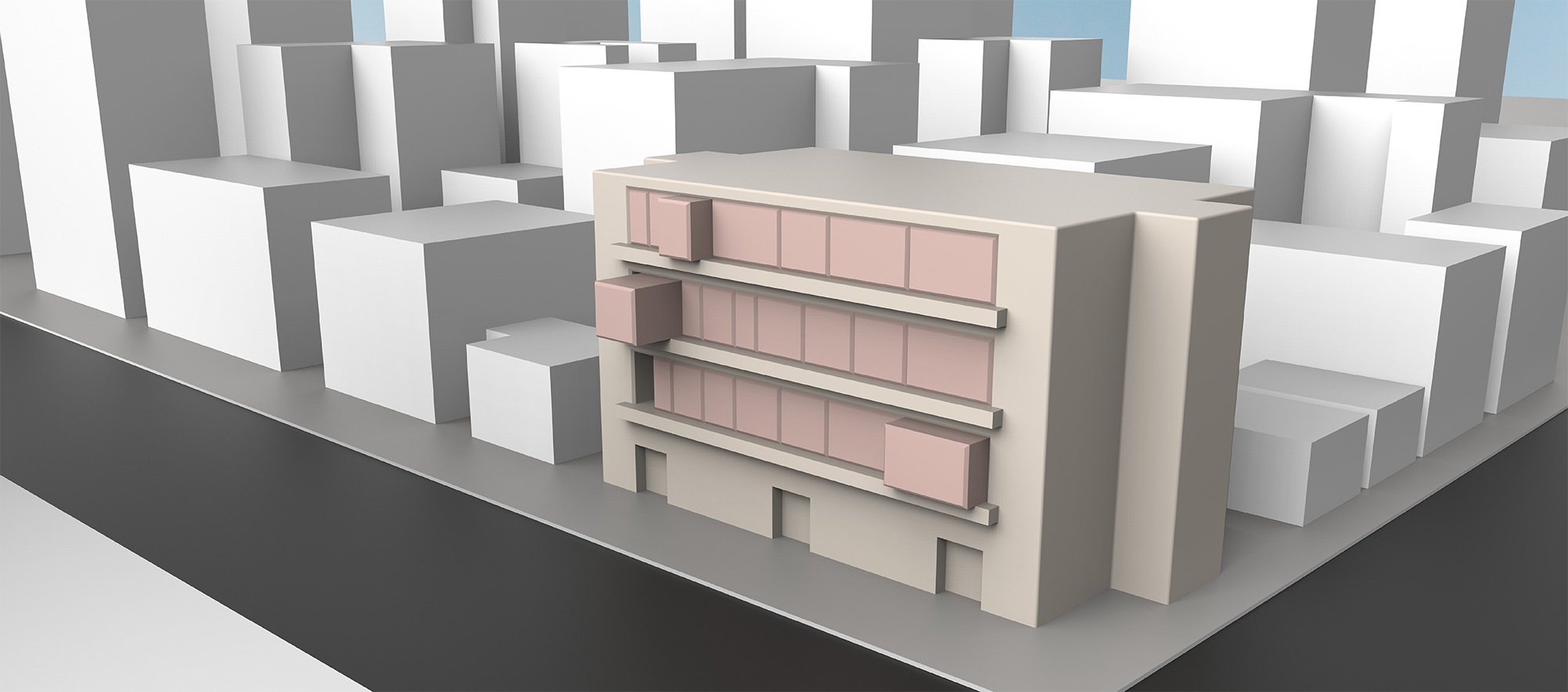



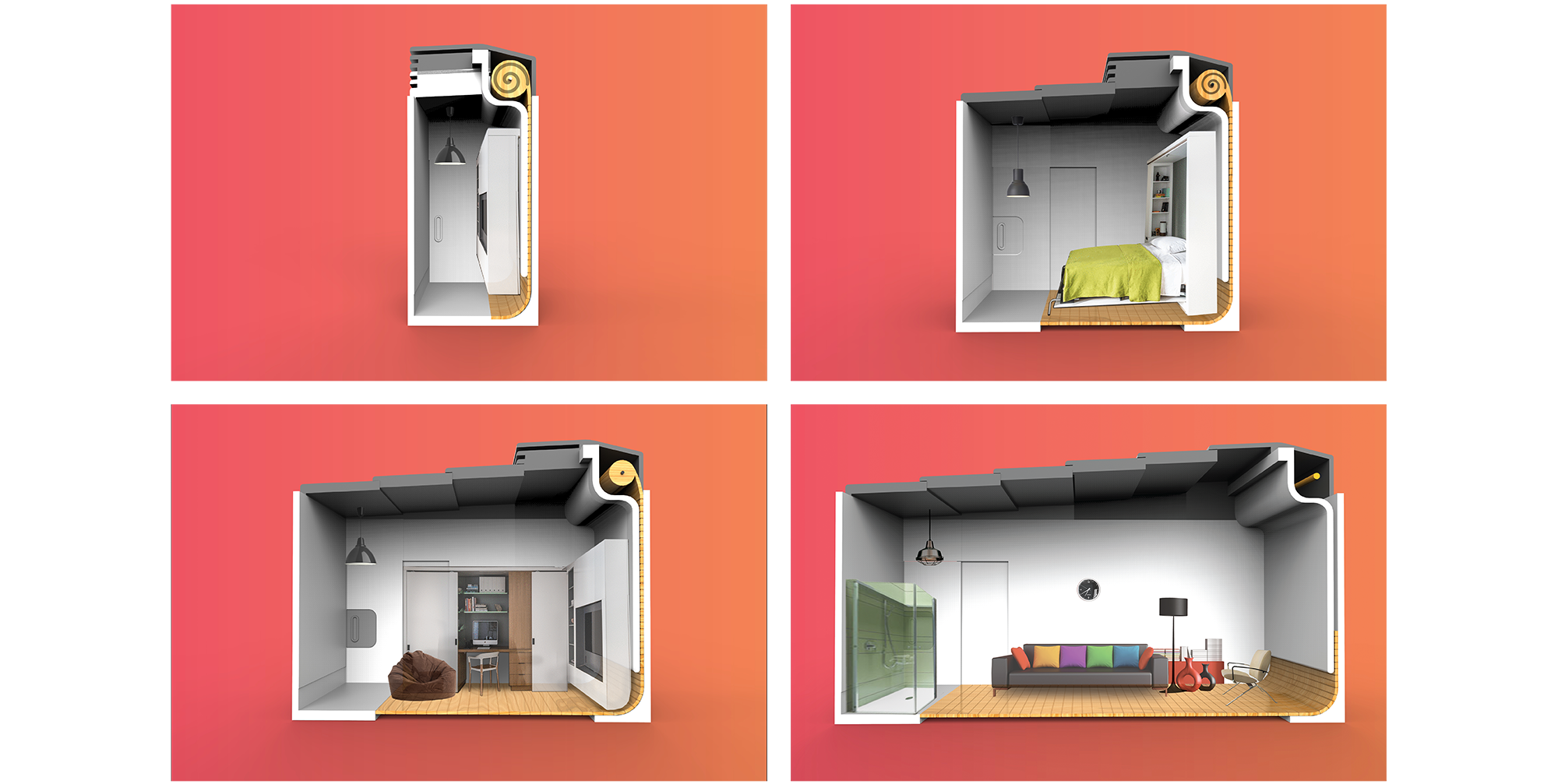

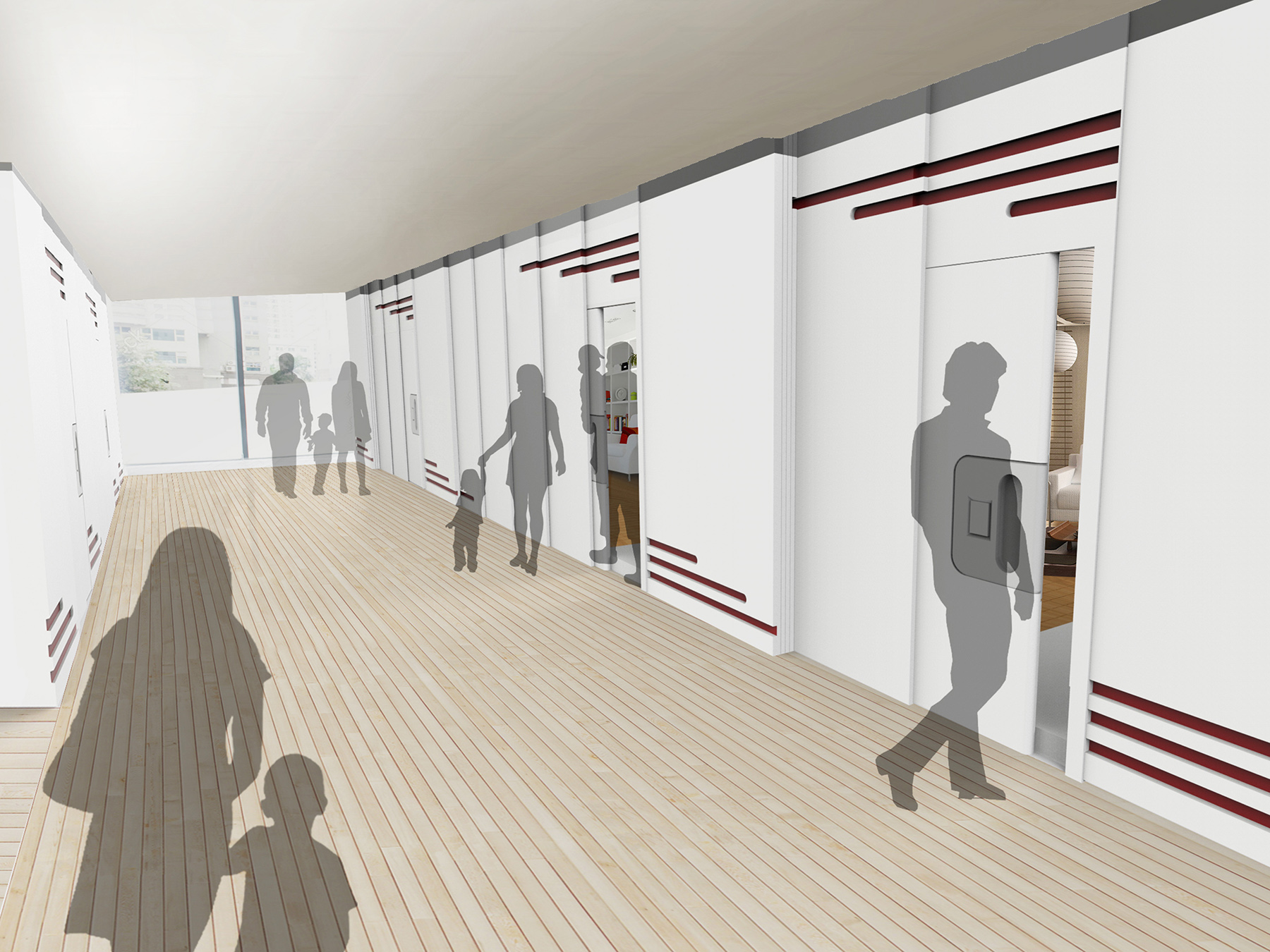

Flexi Apartment System II
The system will need to collect data of people who want to move into this apartment.
When the users search the apartment, they input their information of...
1. Preference of the home size.
3,4,6 spaces available. Based on their financial level
2. How flexible they are with space.
Researching the availability of minimising or enlarging the room size
3. Where is the location they want to live?
Most likely to be based on their work location. The user can choose.
4. How long they are planning to live in the place. Urban populations have a higher chance of moving from one place to another.
5. Traveller mode.
Short term staying user. Those who stay there for a few weeks to a month.
The system begins searching the available spaces after all the information above is input. This process might take some time in case there is no available space yet.
The system auto-calculates the mixture of people with different financial statuses. It is to balance out the space usage per person.


5 Brand Keywords
These are 5 brand keywords for the Flexi brand identity. Most of the Flexi users would be of low income class population who are seeking for a hopeful tomorrow. Because Flexi should fulfil those users’ needs, it emphasis their hope and efficiency the most.
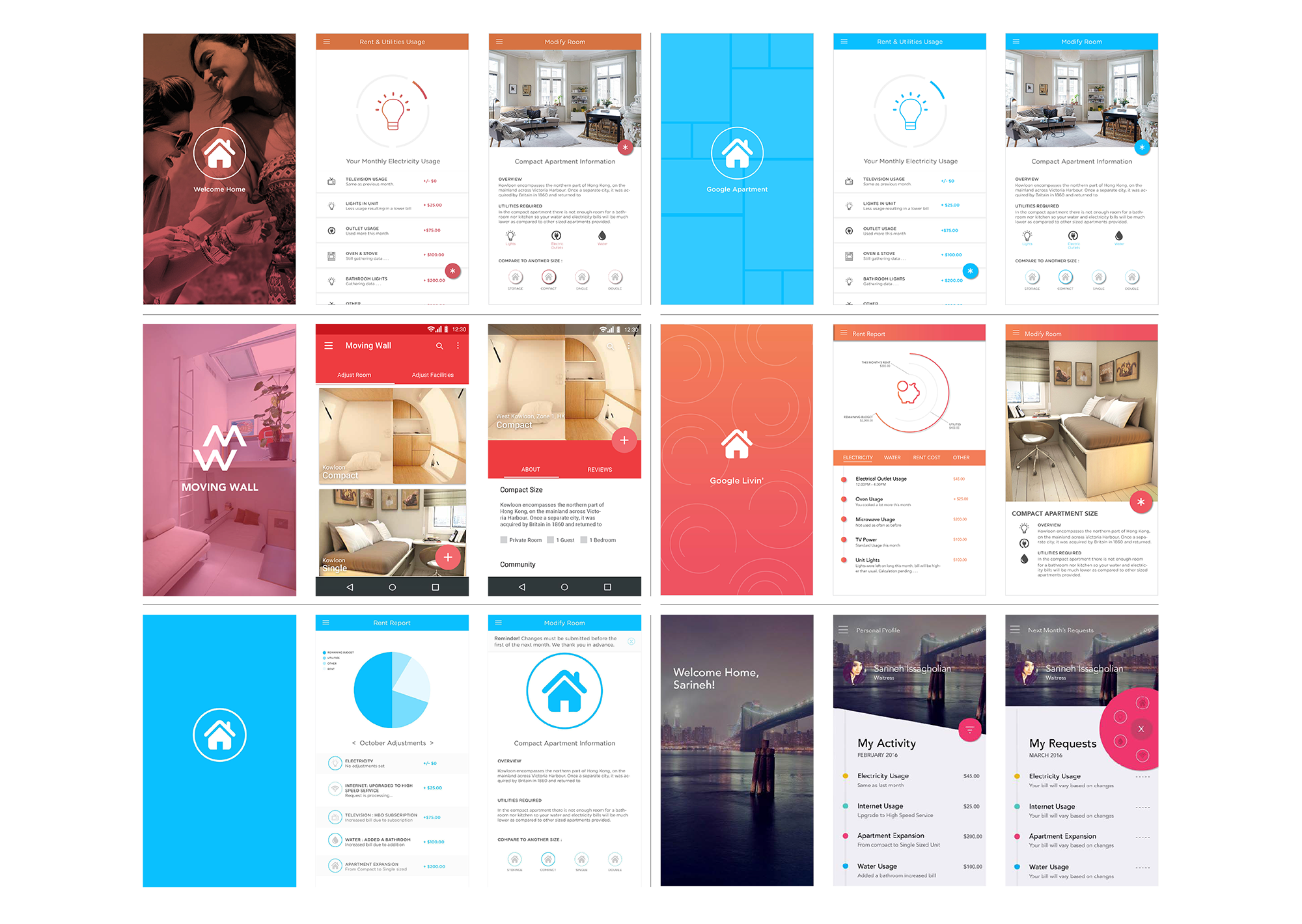

Interface Exploration
Interface design is decided with these 5 brand keywords. A lot of other styles and colour themes were explored to figure out which fit the Flexi identity the most. Getting feedback from fresh eyes helped with choosing the direction.
